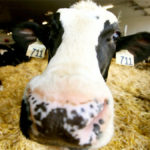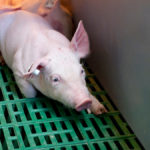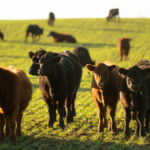
Lowering winter beef cow feed costs
There are opportunities to decrease the highest expense on beef farms

AgriCulture – the documentary
Film by Sheridan College student looks at farm hazards

Planning for “What if”
Succession planning questions to ask and steps to take to start the conversation

Finding and keeping farm employees
Informative job description and positive workplace are key contributors

Poultry housing changes could increase risk of disease
Barn management can decrease risks of bird illness

Opportunities exist to increase profits at the feed bunk
Feed bunk costs can vary by 10 per cent based on gross revenue

Hog farmers continue to reduce antimicrobial use
Five-year study shows 57 per cent of participating farms decreased their antimicrobial use

Farm business optimism continues to be low
Business group calls on federal and provincial minister to address barriers to farm financial health

Taking the sustainability discussion to the city
An event in Toronto’s centre emphasized the complexity of farm ecosystems

Lots of options for automated calf feeding
Calves on two farms started differently before moving to individual rail feeding


